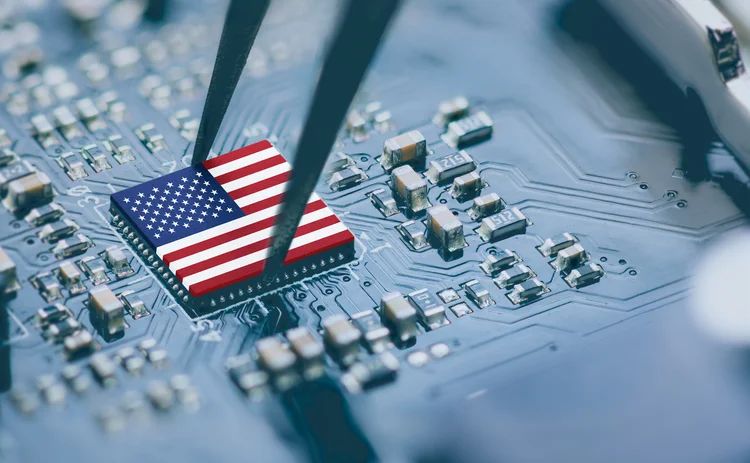Chevron’s absence leaves questions for elusive AI regulation in US
The US Supreme Court’s decision to overturn the Chevron deference presents unique considerations for potential AI rules.

In oral arguments held before the US Supreme Court for the Relentless, Inc v. Department of Commerce trial, Justice Elena Kagan posed a hypothetical: What if Congress enacts a sweeping artificial intelligence bill that has “all kinds of delegations” for an agency or agencies to regulate the new field of technology?
The idea isn’t outlandish, as President Biden and former President Trump have talked about regulating AI, and a bill working its way through California could have huge implications for AI development in Silicon Valley, and potentially other states.
Kagan’s concern was that if the Court struck down the “Chevron deference” (see Box), it could impact how future AI bills would be implemented.
“Let’s imagine Congress enacts an artificial intelligence bill and it has all kinds of delegations—maybe it creates an agency for the purpose or maybe it uses existing agencies, and it has all kinds of delegations to that agency or agencies about how to regulate artificial intelligence,” Kagan said. “There are going to be all kinds of places where, although there’s not an explicit delegation, Congress has, in effect, left a gap. It has created an ambiguity. And what Congress is thinking is, do we want courts to fill that gap, or do we want an agency to fill that gap?”
Need to know
- The Chevron deference was struck down at the start of July by the US Supreme Court in a 6-3 ruling.
- It was a doctrine that meant that specialist regulators were allowed to interpret vagaries in legislation from Congress, rather than courts.
- While the SEC has not employed the deference often, the removal of giving regulators the benefit of the doubt to interpret specific laws has potential knock-on effects for upcoming legislation around emerging technologies.
Kagan posed this hypothetical in January. Four months later, the Supreme Court struck down the 40-year-old Chevron precedent that said courts should defer to regulators on specific interpretations of congressional legislation.
The ruling received a mixed reception in the financial services sector. Those in favor of the Chevron deference say that agencies like the US Securities and Exchange Commission (SEC)—which would likely be the lead financial regulator in charge of AI oversight in the US—have “expertise” in the capital markets and are better positioned to interpret the vagaries decreed in laws passed by Congress. Those glad to see it go say these same agencies have overstepped their authority for too long, and that these decisions should be made by the courts.
While the SEC is certainly an expert body on topics like market structure, fraud, and corporate governance, some legal experts say that it may be hamstrung when it comes to emerging technologies like deep neural networks and generative AI.
“They’re not a technology agency. They have all kinds of experts in accounting and the Division of Economic and Risk Analysis (DERA), and I’m sure they have people on staff who are getting smarter on AI, but it’s a newer technology,” says Fred Block, a partner at law firm Morgan Lewis. Prior to joining the private sector, Block worked within the SEC’s enforcement division for 15 years. He notes the Commission’s recent efforts to limit alleged “AI washing” could be hindered by a lack of technological knowledge within the regulator.
AI is so complicated. I don’t think that there’s a fundamental understanding of it among the rulemakers in Congress. I don’t think they know what to do with it
Ken Breen, Cadwalader, Wickersham and Taft
Block explains that the SEC would need to hire external AI experts to back up specific claims in relation to artificial intelligence made by the regulator in court, as top AI talent is likely working for AI-focused tech companies or wealthy funds instead of for a government agency.
“I think they have some [in-house] AI experts, but with how much is going on in this space, they are going to be overwhelmed. They’re going to need more,” he says, at a time when the agency constantly has to battle Congress for more resources. Block says that even if top AI talent chooses not to work for a high-power fund or an investment bank, they are more likely to choose one of the “plenty” of organizations that are using AI for more interesting reasons.
Currently, the SEC doesn’t regulate AI in financial services, but it does propose and enforce rules that affect tools and systems using AI. For example, the SEC has already squared off against broker-dealers and their use of predictive analytics. And it has taken on firms that the agency believes were misrepresenting their AI capabilities. As various breeds of AI become more prevalent—not just in the capital markets, but in everyday life—it’s not out of the question that Congress could pass something akin to another Dodd–Frank Act to protect “mom and pop” investors from predatory AI usage. Without the Chevron deference, it would be up to Congress and the courts to account for minutiae that may not yet exist at the time a bill is proposed.
With Chevron, plans to regulate tech relied on agencies interpreting and enforcing broad principles extrapolated from congressional statutes. Its absence could slow down the process of AI enforcement as cases work through the judicial system, but some believe this will create a fairer process for those developing these tools.
Meg Tahyar, head of the financial institutions practice at law firm Davis Polk, says that since the courts can no longer defer to agencies like the SEC, Congress will have to phrase statutes more precisely, as there had been a tendency for courts to use Chevron as an excuse not to “think things through,” she says.
“It’s a call to Congress to stop relying on administrative agencies to fix things when Congress is in ‘do-nothing mode.’ The Supreme Court is saying to Congress, ‘Step up and do your job,’ and they’re saying to agencies, ‘Step up and do your job,’” Tahyar says.
Indeed, Justice Neil Gorsuch, who had favored overturning Chevron for decades prior to June’s decision, said in his concurring arguments for the doctrine’s removal that it gave regulators like the SEC too much power in determining specific rules.
“When applying Chevron deference, reviewing courts do not interpret all relevant statutory provisions and decide all relevant questions of law. Instead, judges abdicate a large measure of that responsibility in favor of agency officials. … Agency officials, too, may change their minds about the law’s meaning at any time, even when Congress has not amended the relevant statutory language in any way,” Gorsuch said.
On the other hand, some doubt Congress’ ability to write a prescriptive regulation to address AI sprawl in the capital markets.
By reducing the purview of regulatory authorities like the SEC and the Commodity Futures Trading Commission (CFTC) through the removal of Chevron, the US seems to be leaving the regulation of emerging technologies to officials that lack the expertise to understand new legislation around AI, never mind implement it effectively. Ken Breen, a partner in the white-collar defense and investigations practice at US law firm Cadwalader, Wickersham and Taft, says that artificial intelligence is so complex that lawmakers themselves are also unsure how to tackle it.
“AI is so complicated,” he says. “I don’t think that there’s a fundamental understanding of it among the rulemakers in Congress. I don’t think they know what to do with it.”
Under pressure
Generative AI is already causing problems for regulators based on its model of ingesting data to produce answers. With such a range of datasets being fed into various large language models (LLMs), there are legal ramifications if that data is private, copyrighted, or proprietary. Worse still, it will be difficult for firms to tackle the explainability issue, and GenAI can accidentally spread misinformation if user prompts are too vague by “hallucinating” a false answer.
In mid-June, while providing testimony for the Senate Appropriations Subcommittee, SEC commissioner Gary Gensler noted that the SEC “is the cop on the beat watching out for the investing public and issuers. The dedicated staff of this agency does extraordinary work with limited resources.” He was making his case for Congress to approve the SEC’s budget. But the SEC working with “limited resources” for its day-to-day investigations and enforcements, and AI is already complex and becoming more so, which—to Kagan’s hypothetical—raises the question of whether the SEC is equipped to enforce a rule akin to an AI Dodd–Frank.
Phara Guberman, partner in the global litigation group and member of the white-collar defense and investigations practice at Cadwalader, says that the US is unable to enact sweeping AI regulations due to the nature of the country’s legislative makeup. While the EU passed its AI Act earlier this year, and the UK’s King Charles announced government plans for forthcoming AI legislation, the US is lagging behind.
“The EU’s AI law that was passed is very much about privacy issues and incorporating all of the General Data Protection Regulations into its AI policy,” Guberman says. “First and foremost, the US doesn’t even have a federal privacy law. Even if it did, it wouldn’t necessarily fall under the SEC’s jurisdiction. We already have states passing their own AI regulation when the federal government hasn’t.”
Guberman thinks that Congress will have to specifically designate the SEC the authority to take on AI issues, and if the regulator then makes those rules and enforces them, that will be consistent with the Court’s decision on Chevron.
Because the SEC has not historically relied on Chevron as a cornerstone of its administrative process, it may actually benefit from the overturning of Chevron in the long run, Block says. In Loper Bright Enterprises v Raimondo, the companion case to Relentless, Inc v. Department of Commerce, the Supreme Court noted that certain statutes give agencies the ability to enact rules delegation expressly.
Settlements out of court do not set legal precedents and cannot shape law. While such settlements do define what the Commission views as appropriate conduct, they do not have bearing on other cases. An SEC win in court, on the other hand, would mean the agency can set precedents for future cases and entities alleged to have engaged in similar conduct.
Turning tides
If Congress can’t draft a comprehensive regulatory statute without creating room for interpretation, agencies that have to enforce these statutes are going to struggle from the outset.
Russ Ryan, senior litigation counsel at the New Civil Liberties Alliance (NCLA), previously worked within the SEC’s division of enforcement for nine years before joining multinational corporate law firm King & Spalding, where he advised and represented clients under SEC enforcement investigations. In 2015, he left the firm to become deputy chief of enforcement at the Financial Industry Regulatory Authority (Finra), where he worked for three years, before joining the NCLA in 2022.
Ryan explains that until 2013, the SEC had not lost a case in the Supreme Court in almost 30 years, and that between 1985 and 2013, the Court did not review a single case where the SEC had won in the lower courts. Then the mood soured.
“Starting in 2013, however, the court has granted review in more than half a dozen such cases, and in most of them, ultimately ruled against the SEC—sometimes unanimously,” he says. “That’s due partly, I think, to the difference in the makeup and philosophy of the current court, but it’s also, I think, a lot of self-inflicted wounds by the agency where it simply lost its way and got too big for its britches, trying to get away with doing things that it had no power to do.”
A spokesperson for the SEC declined to comment for this article, but referred WatersTechnology to a statement by the SEC’s director of the division of enforcement, Gurbir Grewal, from the day of the Securities and Exchange Commission v. Jarkesy decision: “The SEC will continue to protect investors and enforce the federal securities laws, including by filing actions in federal court. Indeed, during the last several years, the SEC has successfully enforced the federal securities laws in federal court, obtaining favorable jury verdicts and dispositive motion rulings in highly contested matters with industry-wide implications.”
Further reading
Only users who have a paid subscription or are part of a corporate subscription are able to print or copy content.
To access these options, along with all other subscription benefits, please contact info@waterstechnology.com or view our subscription options here: http://subscriptions.waterstechnology.com/subscribe
You are currently unable to print this content. Please contact info@waterstechnology.com to find out more.
You are currently unable to copy this content. Please contact info@waterstechnology.com to find out more.
Copyright Infopro Digital Limited. All rights reserved.
As outlined in our terms and conditions, https://www.infopro-digital.com/terms-and-conditions/subscriptions/ (point 2.4), printing is limited to a single copy.
If you would like to purchase additional rights please email info@waterstechnology.com
Copyright Infopro Digital Limited. All rights reserved.
You may share this content using our article tools. As outlined in our terms and conditions, https://www.infopro-digital.com/terms-and-conditions/subscriptions/ (clause 2.4), an Authorised User may only make one copy of the materials for their own personal use. You must also comply with the restrictions in clause 2.5.
If you would like to purchase additional rights please email info@waterstechnology.com
More on Regulation
Off-channel messaging (and regulators) still a massive headache for banks
Waters Wrap: Anthony wonders why US regulators are waging a war using fines, while European regulators have chosen a less draconian path.
Banks fret over vendor contracts as Dora deadline looms
Thousands of vendor contracts will need repapering to comply with EU’s new digital resilience rules
Aussie asset managers struggle to meet ‘bank-like’ collateral, margin obligations
New margin and collateral requirements imposed by UMR and its regulator, Apra, are forcing buy-side firms to find tools to help.
The costly sanctions risks hiding in your supply chain
In an age of geopolitical instability and rising fines, financial firms need to dig deep into the securities they invest in and the issuing company’s network of suppliers and associates.
Industry associations say ECB cloud guidelines clash with EU’s Dora
Responses from industry participants on the European Central Bank’s guidelines are expected in the coming weeks.
Regulators recommend Figi over Cusip, Isin for reporting in FDTA proposal
Another contentious battle in the world of identifiers pits the Figi against Cusip and the Isin, with regulators including the Fed, the SEC, and the CFTC so far backing the Figi.
US Supreme Court clips SEC’s wings with recent rulings
The Supreme Court made a host of decisions at the start of July that spell trouble for regulators—including the SEC.
This Week: FCA, Plato/Turquoise, Franklin Templeton, and more
A summary of the latest financial technology news.








